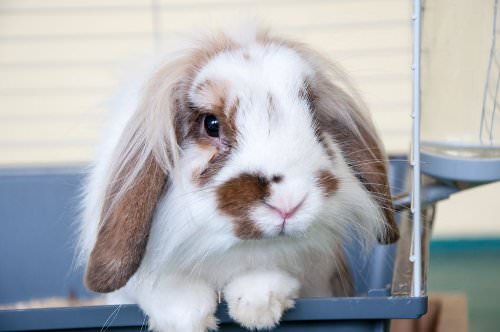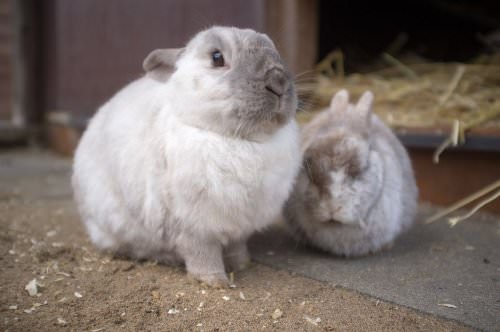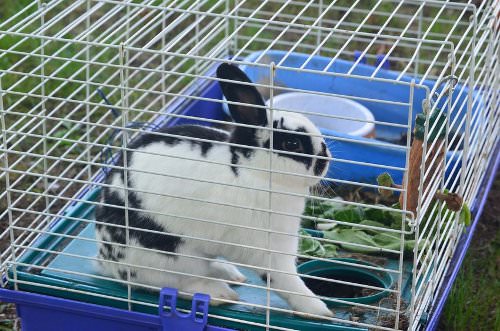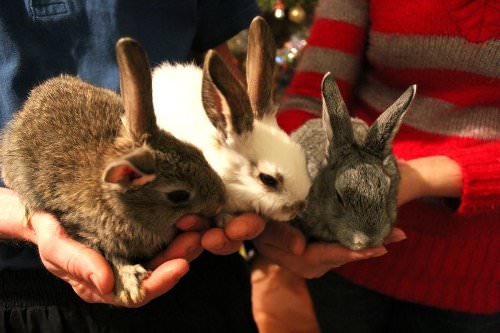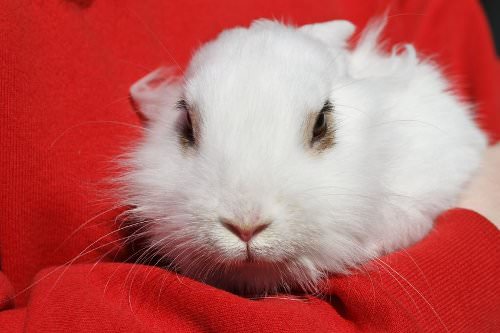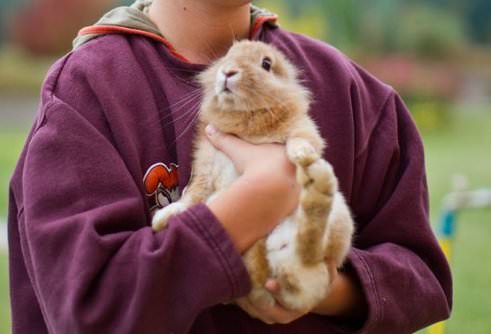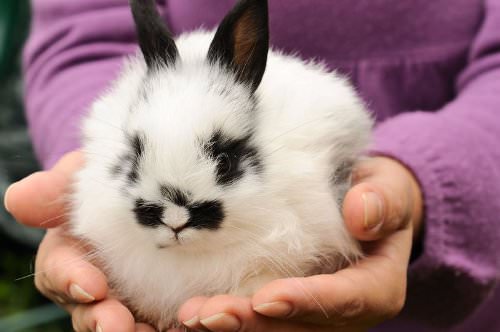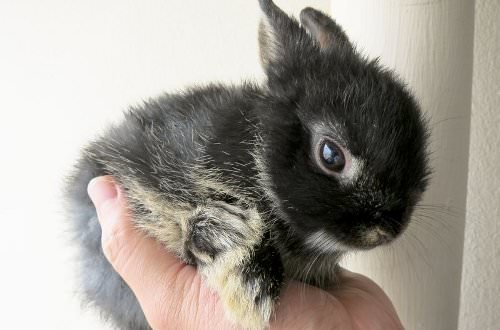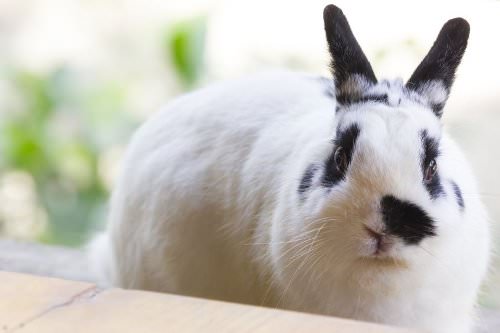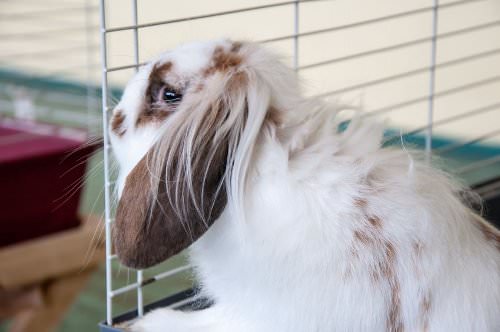Rabbits can make wonderful pets, but it’s essential to know all of their care requirements to keep them happy and healthy. You’ll love the charm and singular ‘personality’ of your new pet as you get to know it over time. The following tips will help you provide the care your rabbit needs to live a long and healthy life.
1. Indoor or Outdoor Pet
The most important early decision you’ll make about your rabbit is determining whether it will be an indoor or outdoor pet. House rabbits make incredible pets while an outdoor rabbit may never become as personable or as pet-like as a rabbit cared for indoors. An indoor rabbit is certainly safer from predators and parasites than one kept in a cage outdoors. That said, be sure to procure some expert guide books for the in-depth care your rabbit will need no matter where it’s kept.
2. Consider the Cage
Your rabbit will require plenty of room for sleep, play, eating, and eliminating. When choosing a cage, make sure to find out how large your breed is apt to grow so you can choose a cage for that eventual size. Keep in mind that a wood hutch is likely to hold odor and be more difficult to clean and sanitize than a modern commercially made rabbit cage that has a plastic bottom. These cages may also be more comfortable for rabbits and be quite easy for pet owners to maintain.
Read also – 10 Most Unique Pets You Can Own
3. Proper Feeding
Your rabbit will seem like a non-stop eater. Rabbits love to munch and chew. In fact, they need to in order to taper off those front teeth that will simply keep growing and growing. Look for fortified rabbit pellets at your pet store. You needn’t choose a brand over-laden with treats as your bunny might realistically develop a preference for the goodies (they are sweet-teeth after all) and ignore the more healthful pellets. Your rabbit should also have a daily supply of timothy hay to eat (only give alfalfa as a treat–timothy hay is better for them).
Read also – 10 Things to Consider When Looking for a Pet
4. Fruits and Veggies
Rabbits can eat most vegetables and fruits, but some are not so good for them. Broccoli, for instance, can lead to painful gas bubbles that rabbits do not have the capacity to deal with. There are many lists online that you can keep on you when you visit the grocery store. Bunnies adore carrots, of course, but also parsley, apple slices, parsnips, strawberries, and even bell peppers. Many herbs like cilantro are also enjoyable treats for rabbits.
Read also – 7 Tips on How to Avoid Spoiling Your Pet
5. Grooming
Your bunny is not like a cat and while it does groom itself in a feline fashion, it lacks the ability to cough up hairballs. For that reason, it’s important to brush your rabbit daily in order to remove shedding hair. Shedding will be heavier at certain times of year so it’s particularly important to make sure your rabbit is getting all the brushing it needs. Also, you or your veterinarian will have to make sure the rabbit’s nails are maintained and cut regularly.
Read also – 10 Small Pets That Are Great for Kids
6. Social Needs
Your rabbit is a social creature. It will certainly (in most cases) enjoy the company of a fellow rabbit, but if your pet is a single, be sure to spend quality time with your rabbit each day. The more time you spend with your pet, the more it will become integrated into the home. In fact, bunnies that are afforded plenty of time with their owner tend to be more laid back and friendly than pets that are decidedly left alone.
Read also – 9 Exotic Cat Breeds You May Have Never Seen Before
7. Exercise
Leaving your rabbit cooped up in his cage without proper exercise isn’t healthy and will also detract from its mood. You can create rabbit run in your backyard or inside your home to allow it to get in some vital hopping time. Many people are quite comfortable allowing their rabbit to hop around a room providing they have bunny-proofed the premises!
Read also – 9 Unique Dog Breeds You May Never Come Across
8. Bunny-Proofing the Home
Rabbits love to chew and homeowners’ wooden table legs might look like a pretty yummy snack to rabbits. Worse, many rabbits will happily pounce on electric cords and begin to nibble which can lead to disastrous results. There are cord covers that you can get to protect both your appliances and pet. You should also keep books or other items picked up or your curious bunny is likely to take a nibble or two.
Read also – Top 8 Common Pet-Owner Mistakes
9. Potty Training
Yes! Rabbits can be potty-training. Many automatically choose a spot in their cages and will hop back inside the cage to relieve themselves even when enjoying time spent hopping around. You can also use tactics that you would for house training a cat, for instance. Some breeds take to it better than others, but it can be accomplished and is always well worth the effort!
Read also – 7 Things You Can Learn from Pets
10. Supervise
Finally, keep watch over your rabbit when it’s out of its cage. It can easily find mischief for itself – especially rambunctious pets. On the other hand, you might find your rabbit is happily lazy and likes to sit around and watch TV with you and the kids. When it comes to kids, of course, pay close attention as rabbits are delicate and children should not be allowed to pick rabbits up or handle them without adult supervision.
You’ll find that rabbits can make darling pets. They will enliven the household in their own special ways. You can enhance their lives by following these care tips and making them feel right at home! Do you have any other tips you’d like to share with us?

